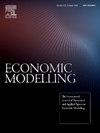在预期的遗憾之下预防性储蓄
IF 4.7
2区 经济学
Q1 ECONOMICS
引用次数: 0
摘要
本研究在两期模型中考察了后悔厌恶主体的储蓄行为。分析表明,对大后悔的不成比例的厌恶引起了类似概率加权的伪效应。特别是,代理将更大的权重分配给可能产生重大储蓄后悔的状态。因此,当收入冲击严重负向倾斜时,“后悔厌恶”会鼓励预防性储蓄,但当收入冲击不严重时,它会减少甚至逆转预防性储蓄。在二元风险较小的情况下,代理人储蓄多于贴现效用对手的确切偏度条件得到了表征。值得注意的是,随着绝对审慎的传统衡量标准的增加,这一条件变得更具限制性。涉及大收入冲击的模拟进一步证实,从小风险案例中得出的定性见解可以扩展到更广泛的情景,强调当收入风险倾斜时,后悔厌恶会极大地影响储蓄行为。本文章由计算机程序翻译,如有差异,请以英文原文为准。
Precautionary saving under anticipated regret
This study examines the saving behavior of a regret-averse agent within a two-period model. The analysis demonstrates that disproportionate aversion to large regrets induces a pseudo effect resembling probability weighting. In particular, the agent assigns greater weight to states in which significant saving regret might arise. As a result, regret aversion encourages precautionary saving when income shocks are sufficiently negatively skewed but diminishes or even reverses precautionary saving when they are not. The exact skewness condition under which the agent saves more than a discounted utility counterpart is characterized in the context of small binary risks. Notably, this condition becomes more restrictive as the traditional measure of absolute prudence increases. A simulation involving large income shocks further confirms that the qualitative insights derived from the small-risk case extend to broader scenarios, highlighting that regret aversion can substantially influence saving behavior when income risks are skewed.
求助全文
通过发布文献求助,成功后即可免费获取论文全文。
去求助
来源期刊

Economic Modelling
ECONOMICS-
CiteScore
8.00
自引率
10.60%
发文量
295
期刊介绍:
Economic Modelling fills a major gap in the economics literature, providing a single source of both theoretical and applied papers on economic modelling. The journal prime objective is to provide an international review of the state-of-the-art in economic modelling. Economic Modelling publishes the complete versions of many large-scale models of industrially advanced economies which have been developed for policy analysis. Examples are the Bank of England Model and the US Federal Reserve Board Model which had hitherto been unpublished. As individual models are revised and updated, the journal publishes subsequent papers dealing with these revisions, so keeping its readers as up to date as possible.
 求助内容:
求助内容: 应助结果提醒方式:
应助结果提醒方式:


